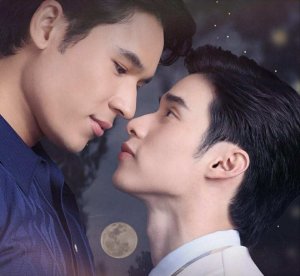A Masterpiece That Captures the Reality of Same-Sex Relationships
At first, I was confused by the imagery of the characters walking in a straight line—but by the end, everything made perfect sense. The title, “Life: Love on the Line,” resonates so deeply now. It’s not just a metaphor—it encapsulates the entire journey of Akira and Yuuki, who meet at 17 and grow old together until they’re 82.
I can’t believe this was released in 2020 and I only came across it five years later. This is far from the typical Thai university BL series filled with light-hearted romantic tropes. Instead, it's a deeply mature and realistic portrayal of a same-sex relationship navigating the complexities of life, family, and societal expectations.
Akira was the first to feel attracted to Yuuki, initiating their first kiss. He was drawn to Yuuki from the very beginning. But after living together for 11 years, it becomes evident that Akira faced immense pressure—from both his parents and friends—to lead a so-called “normal” life: marriage, children, and conformity. That inner conflict resonated with me on a deeply personal level. I found myself in tears, overwhelmed with emotion, because I too am in a similar situation. In my early 30s, still closeted, I continue to face pressure from family and friends to marry and start a family, all while hiding who I truly am.
Akira, like many, may have momentarily lost sight of the person who truly loved him—Yuuki. Sometimes, people don’t realize what they have until it’s gone. That realization can come too late.
Many viewers may feel anger towards Akira for leaving Yuuki, but the context matters. Yuuki’s mother was open-minded and supportive, while Akira’s mother was not. Akira simply wanted to be seen as "normal" in the eyes of his family. But in the end, he recognized the mistake he made and showed genuine remorse. His confrontation with his mother was powerful, emotional, and incredibly realistic. He not only stood up for himself but also supported his sister through her own struggles.
It begs the question: Does living a “normal” life truly bring happiness? For many parents, like Akira’s mother, being “normal” means avoiding gossip or judgment. But happiness doesn’t come from fitting in—it comes from being with the person you love, someone you want to spend your life with, regardless of what society expects.
What I loved most about this series was its realism. The chemistry between the two male leads was profound, the storyline was compelling, and every moment felt authentic and powerful. It’s an absolute masterpiece—10 out of 10.
I wholeheartedly recommend this series to everyone. Japanese BL dramas hit differently—they don’t just entertain; they make you feel, reflect, and relate.
Was this review helpful to you?


 5
5 6
6 1
1 1
1 1
1 1
1 1
1




















